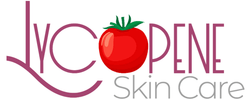While there can be some commonalities among people of Latino, Hispanic, Asian or African descent, not all people have the same type of skin or same skin needs. Many of these people have sensitive skin, and oily skin is also common. Some have large amounts of melanin, or the pigment that gives skin a tan or brown color. These traits can occur independently or together, and they can all lead to skin problems and discoloration.
Common skin issues for include:
Sun Spots
Higher levels of melanin can protect your skin from sunburn, but that melanin won’t keep your skin from suffering from hyperpigmentation, or brown sun spots. If you spent too much time in the sun without sunscreen, you might have spots on your hands, decolletage or face. OTC lightening creams can help lighten these spots and give you a smooth, even-toned complexion.
Acne and Oily Skin
Latin skin is often oily due to high sebum production. The oil can lead to clogged pores and acne, which can leave pits and dark marks after the pimples heal. Treating acne is the best way to avoid these telltale signs, but scars and hyperpigmentation can be left behind after stubborn acne has been treated.
Rosacea
Unfortunately, Hispanics are less likely to be diagnosed with rosacea, a condition that is characterized by a red or flushed appearance of the cheeks, nose and chin, and are often diagnosed with seborrheic dermatitis or acne instead, which can lead to permanent skin changes and hyperpigmentation. Initially, it might look like acne, but over time, skin can become discolored, uneven in tone and texture, and painful. Early diagnosis and treatment are important.
What is Hyperpigmentation?
Hyperpigmentation is a harmless but common issue in which patches of skin develop larger concentrations of melanin. Skin in these areas looks darker than surrounding skin and may appear blotchy, uneven or full of dark spots. If you have hyperpigmentation, sun spots, age spots, rosacea, acne scars or similar problems, the right skin lightening treatment can make a big difference.
Hydroquinone is possibly the best-known skin lightening agent. It has been used for years in women of many ethnicities to lighten dark spots and even their skin tones. Hydroquinone is extremely effective in lightening acne scars, hyperpigmented areas, sun spots and liver spots. Unfortunately, it is also potentially problematic.
Long-term use of hydroquinone ultimately damages the melanin in your skin and causes blue or black discolorations, leading to new and worsening hyperpigmentation. Regular use can also increase sensitivity to the sun and an increased risk of UV damage, skin irritation, allergic reactions and thickened or leathery skin. Some studies have even linked hydroquinone with carcinogenic effects. Because of this, several countries have banned its use.
Safely ridding yourself of dark spots, scars, hyperpigmented areas and age spots is entirely possible but only with the right products.
Natural Lightening Agents
Unlike hydroquinone, natural lightening agents made with botanicals, antioxidants and rich moisturizers even out blotchy skin, erase dark spots and lighten rosacea and acne scars while soothing and hydrating even the most sensitive skin types.
Natural lightening agents include:
Azelaic acid
Also called nonanedioic acid, this special botanical is extracted from coconuts. It is highly effective at destroying pimple bacteria, brightening sun damaged skin, and leaving skin glowing. Micronized azelaic acid is rapidly absorbed by the skin, where it immediately goes to work by blocking the growth of melanocytes, the cells that are responsible for producing melanin. It doesn’t affect natural skin color, though. In fact, normal pigment-producing cells, such as freckles and your own skin color, will be left alone. You’ll be left with beautifully glowing skin that is free of unwanted sun spots, dark scars and discolorations.
Kojic Dipalmatate
This mushroom extract gives skin extra protection against UVA and UVB rays while offering added protection against the signs of aging. It also helps lighten dark spots and soothe hormone-related skin problems.
Glycyrrhiza Glabra Licorice Extract
Licorice extract has a long history of use in herbal medicine and has been used for such diverse skin problems as eczema and cysts to dermatitis and acne. When it comes to hyperpigmented skin, it can also help block the enzyme production that leads to discolorations and age spots. It is a powerful natural alternative to hydroquinone and can brighten and tone uneven skin.
Each ingredient can be used alone, but when combined, they form a potent skin lightening product that can lighten Hispanic skin types without damaging or irritating sensitive skin or aggravating blotchiness. The botanically sourced ingredients improve both the health and appearance of skin while improving texture, tone and coloration.
Azelaic acid, or nonanedioic acid, is gentle enough to be used sensitive, easily irritated skin but powerful enough to combat wrinkles and fine lines, too. When used with Kojic Dipalmatate and Glycyrrhiza Glabra Licorice Extract, azelaic acid can brighten and tone even the most stubborn blotches and age spots.
Hispanic Skin can benefit from Lycopene Cream.

